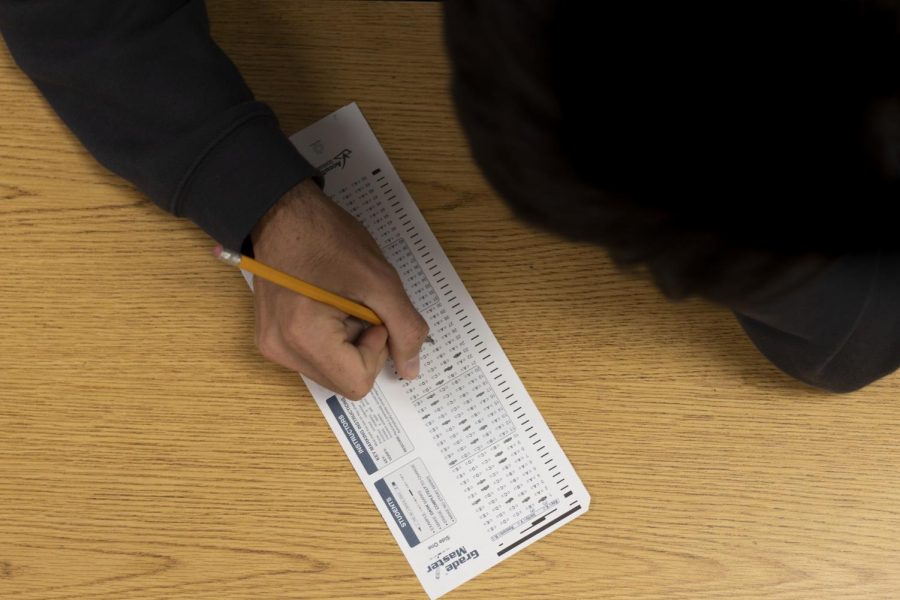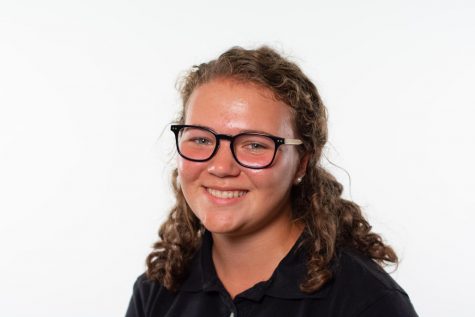For many students at Trinity, day-to-day academic life holds a completely new level of challenges that are not always experienced by their peers. Certain learning disorders affect the way students learn, process and demonstrate material in school, oftentimes making the exercise much more time-consuming for them than it is for others. In order to aid those with learning disabilities, academic institutions have implemented accommodations that cater to students’ individual needs to help them perform at their best in school.
Trinity has offered accommodations for over 20 years to students who demonstrate a need for them through a diagnosis from a psychologist. The majority of students deal with specific learning disorders in reading, written expression and mathematics, as well as ADHD, anxiety and language disorders. While the specific causes of needing accommodations are common knowledge, the process itself is more obscure and not publicly known.
The process to receive accommodations has become increasingly long and extensive over the past 20 years to ensure that they are deserved. Guidance counselor Chris Hempsted said that the process can begin with anyone who notices a possible need for accommodations.
“Usually [students] come and have a conversation with me or their parent calls, and we talk about the process and the testing that has to occur,” Hempsted said. “Teachers sometimes recognize that there may be a problem, and they’ll come to me, and at that point, I usually go to the parent.”
Students are required to test with a psychologist if they want to try to qualify for accommodations. The school can recommend psychologists, though they are also commonly found through other parents. Senior Ivie Maher has had accommodations for diagnosed ADD and dyscalculia, and she said she remembers her testing process from eighth grade.
“I took a lot of tests,” Maher said. “It’s like three separate days, and then you have nine hours of testing in all.”
If the tests reveal an impairment that the psychologist believes could be aided by accommodations, the results, along with the psychologist’s recommendation, will be sent to the school and reviewed by Hempsted.
“The accommodation needs to be recommended by the psychologist, but sometimes the psychologist will recommend accommodations that we don’t provide,” Hempsted said. “So just because the psychologist said it doesn’t necessarily mean that we can do it here … I kind of decide based on their report what we can do.”
If all the proper steps are taken, Hempsted contacts the appropriate teachers and notifies them of the student’s accommodations. However, the accommodations must come straight from a psychologist in order to be legitimately considered.
“I can’t provide [an accomodation] that is not recommended,” Hempsted said, “But if I see there is an additional one that we can provide, I can ask the psychologist if that is something they would recommend, and if they say yes, then we can go ahead and do it.”
In terms of accomodations, Trinity offers students extended time, use of computers when writing in-class essays, the omission of Scantrons, use of a calculator on certain math assessments and extra notes for a class taken by student volunteers.
Most other high schools and colleges offer the same accommodations that Trinity does, but they have also started to expand their ways of catering to students, especially in colleges. Schools have begun to allow students to tape lectures, choose another student as a scribe to help transfer their ideas to paper, and listen to recordings of textbooks and math word problems. In some cases, students are even allowed to dictate their essays or answers to questions. Despite the greater number of alternative accommodations that other schools offer, Hempsted said that Trinity is not currently considering expanding its accommodations.
“At this point, there are not [many other accommodations] that are frequently recommended that wouldn’t be a drastic alteration from our mission and our curriculum that we could probably provide,” Hempsted said.
Most accommodations are addressed in the form of extended time. Extended time usually applies to tests and sometimes to quizzes or in-class essays, and students can receive up to double the standard amount of time on these assessments. Independent Psychologist Dr. James Spratt has been testing children for learning impairments for 40 years and has said that extended time is still the best accommodation to address a wide range of learning disorders.
“The most important [accommodation] is the extended time because you don’t have to then rush through to get to the end of the task,” Spratt said. “You can take your time to really read the questions and to then formulate your answers.”
While the extended time allotted for most assessments can be easily divided between class time and after school testing, timed essays have proven to be a tougher obstacle. English Department Chair Steven Krueger said that splitting up an essay may impede on a student’s progress and thought process.
“For some students, writing part of the essay in the morning and then trying to do more of it in the afternoon, for example, they might lose their train of thought, and they might lose that sort of momentum, and that might, in fact, be detrimental to their overall experience,” Krueger said. “I think if they could write it consistently in one chunk, that will be the ideal situation from the point of view of a teacher’s perspective.”
Teachers sometimes require special training to recognize signs that a student might need accommodations and respond appropriately, and Hempsted said that all teachers are aware of how to address accommodations in the classroom.
“When teachers start here, we meet with them and explain to them how the accommodation works,” Hempsted said. “They also talk about that with their teacher mentors, and then they’re reminded kind of at the beginning of every year about how it works and who’s on [the list].”
Many teachers will recognize when a student needs extra help or time and is willing to provide the student with that without using formal accommodations, and this is sometimes all a student needs. However, students will often benefit from getting the accommodations they have in school during standardized testing, like the SAT or ACT, or even in college. These tests require an appeal for extended time and other accommodations, and students usually must have at least 10 months of documented accommodations before they can take the exam with them.
Due to the private nature of the accommodations process, some students feel that the process gives an unfair advantage to certain students. Social science teacher Isiah Cabal said that the negative stigma is unfounded and undeserved.
“You get extensions all the time in the real world,” Cabal said. “There shouldn’t be a negative stigma associated with it.”
Senior Ryan Psik has received accommodations since ninth grade for a nonverbal learning disorder that has created difficulties in reading and math. He said that he has also encountered the same negative attitude towards accommodations.
“I think in general, a lot of people in regular time have a bit of a stigma against extended time takers because they get more time for the same test, but I think it’s important to recognize that people who actually have it do need it,” Psik said. “I think overall it is a really helpful tool for people that do have actual processing disorders.”
Opinions on the accommodations Trinity offers vary from person to person. Krueger said that it is still challenging to find a solution for every problem brought up.
“I think it is a big sort of challenge, and it’s not a perfect system,” Krueger said. “Genuinely, we try to help students be successful in that way, but there are certain types of skills that we think are important, like an essay, that don’t always neatly divide into pieces that can be sort of split up over the course of a couple of hours. That’s difficult, I don’t know what a good answer is to that at this point.”
Despite offering fewer accommodations, Spratt said that he would still recommend Trinity as a good place to go for accommodations in large part because of the smaller class sizes.
“A lot of it probably has to do with class size,” Spratt said, “Whereas in the public schools you’ll have a teacher who will have in the course of a day 300 students, at Trinity they might have 100, so they’re not as overwhelmed with the number of students they have to address.”
Maher said that accommodations have helped her feel like she has the resources to succeed and excel where she may not have been able to otherwise.
“[Accommodations] have been really helpful because I just feel like I’m on a level playing field with other people,” Maher said. “I just get the time I need to really make me successful even though I’m not good at test taking.”
Accommodations are undoubtedly effective and play a large part in making school life a bit more manageable for the students that receive them.
“As I’ve gotten better at managing my nonverbal learning disorder, [extended time] has become less useful,” Psik said. “But when I was first starting out at Trinity and still trying to figure out how to manage it well, it was really helpful. [It’s] probably why I survived my freshman and sophomore year.”















